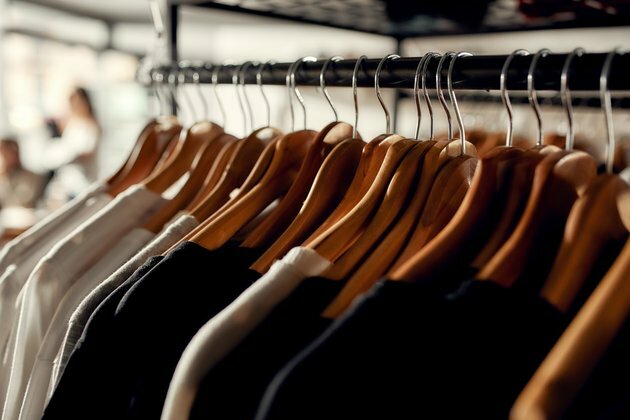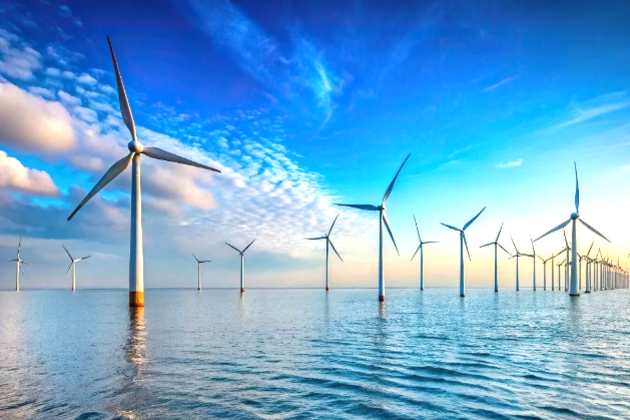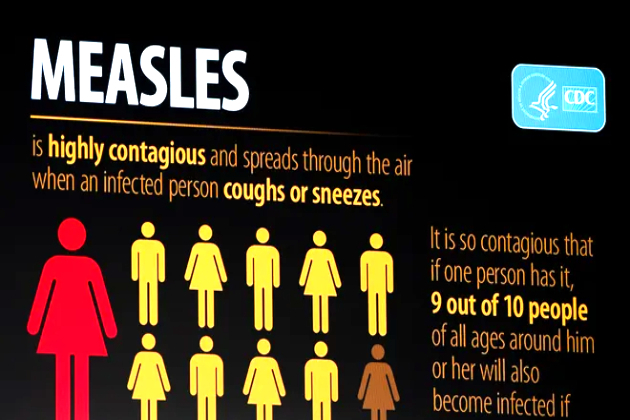Fashion industry's environmental impact is largely unknown - here's why
The Conversation
15 Sep 2023, 00:09 GMT+10

How do the clothes you buy wear out the natural world? To take stock of the damage you have to account for the materials, water and energy that went into making a garment, and the greenhouse gas emissions, chemical pollutants and other byproducts associated with its disposal.
For example polyester, a kind of plastic widely used in T-shirts, is made from oil - a fossil fuel. If you throw it out it degrades slowly, and chemicals from its dyes and surface treatments leach into the soil.
The UK consistently buys more garments than any other European country, spending more than Pound 45 billion (US$56 billion) annually. Fast fashion, an industry trend which involves getting cheap reproductions of catwalk designs out to a mass market as quickly as possible, encourages this buying frenzy.
Much of fast fashion is known to depend on sweatshop labour and polluting factories. But alongside the demand for ever faster fashion at low prices, there is a growing awareness among consumers that something has to change.
Some firms have caught on: many brands now report their environmental footprint and have disclosed their intention to shrink it.
But how trustworthy are these assessments? My research uncovers how the fashion industry collates, analyses and assesses environmental impact data. Unfortunately, as a result of inaccurate and unreliable methods, among other issues, the true cost of fast fashion remains largely unknown.
The hidden price tag
A multitude of metrics, certification schemes and labels mark the environmental consequences of making and selling clothing. Brands have been accused of greenwashing due to the poor quality of information used in some of them.
One common product-labelling tool within the industry was the Higg Materials Sustainability Index. Introduced in 2011, the Higg Index was a rating system used by several large brands and retailers to determine and report the global warming impact and water consumption of different products, among other environmental measures.
The approach adopted by the index was challenged by the Norwegian Consumer Authority for limiting its assessment to only certain phases of a product's lifecycle, such as the sourcing of materials. It was criticised for overlooking pollutants such as microfibres, which are released from textiles during manufacture, wear and washing. As a result, the index was suspended in June 2022.
Since then, further issues have come to light. These include:
- unreliable data - measures often rely on brands self-reporting without their information being verified by an impartial third party
- vested interests - many tools and indices are funded, or part funded, by organisations that could benefit from more positive reporting
- tunnel vision - existing methods tend to focus on only one environmental impact, such as water use or carbon emissions, while the relationship between these factors is overlooked
- paywalls - many tools require brands to pay into them. This can effectively exclude smaller businesses and limit the tool's coverage
- lack of standards - there is no official baseline to determine acceptable thresholds of environmental footprint of any one product.
Without reliable and accurate assessments of a product's environmental impact, consumers are left in the dark. For example, a common misconception is that cotton, being a natural fibre, is better for the environment than synthetic materials such as acrylic and elastane.
But cotton requires vast quantities of water to grow, harvest and process. A standard cotton t-shirt, for example, requires 2,500 litres while a pair of jeans consumes 7,600 litres.
One fibre is not necessarily better than the other. Rather, every material and manufacturing process affects the natural world in one form or another. With such misconceptions rife, it's difficult for consumers to make sound comparisons. That's why accurate measures are desperately needed.
The true cost of fashion
The complexity of fashion's global supply chain, which spans thousands of miles from fields to shop floors, makes accurate measurements exceptionally difficult. Capturing an accurate picture of the industry's environmental footprint will rely on a certain level of transparency across the industry. It will also require multiple sectors - including production, manufacturing and retail - working collectively towards a common goal.
An acceptable definition for "sustainable", informed by standards and baselines, could empower consumers to make more informed decisions about their purchases. With Gen-Z labelled the sustainable generation, it is time for fashion to reform.
Don't have time to read about climate change as much as you'd like?
Get a weekly roundup in your inbox instead. Every Wednesday, The Conversation's environment editor writes Imagine, a short email that goes a little deeper into just one climate issue. Join the 20,000+ readers who've subscribed so far.
Author: Alana James - Assistant Professor in Fashion, Northumbria University, Newcastle 
 Share
Share
 Tweet
Tweet
 Share
Share
 Flip
Flip
 Email
Email
Watch latest videos
Subscribe and Follow
Get a daily dose of Leeds Times news through our daily email, its complimentary and keeps you fully up to date with world and business news as well.
News RELEASES
Publish news of your business, community or sports group, personnel appointments, major event and more by submitting a news release to Leeds Times.
More InformationEurope
SectionOne in three serious road accident victims in Ireland under 30
DUBLIN, Ireland: One in three people killed or seriously injured on Irish roads in 2025 have been under the age of 30, according to...
UK seeks $6 billion fine against Google, claims unfair practices
LONDON - Google is facing a multibillion-pound legal challenge in the UK over allegations it misused its dominance in online search...
Eyeing new opportunities, Lyft joining European market
Lyft is making its first move into Europe with the purchase of mobility platform FreeNow, a nearly $200 million deal that signals a...
Dublin councils unite to propose tourist tax
DUBLIN, Ireland: Dublin's four local councils are joining forces to push for the introduction of a tourist tax, aiming to unlock a...
Global EV sales soar in March, led by China and Europe
LONDON, UK: Electric vehicle sales surged globally in March, with strong growth in China and Europe offsetting slower momentum in North...
Ireland sees 75% drop in home burglaries over decade
DUBLIN, Ireland: Residential burglaries have dropped by 75 per cent in Ireland over the past decade, according to new Garda figures,...
International
SectionU.S. halts Equinor's Empire Wind Project over environmental concerns
WASHINGTON, D.C.: U.S. Interior Secretary Doug Burgum has ordered a stop to construction of Equinor's Empire Wind project off New York's...
Asian nations boost US energy buys amid trade tensions
SINGAPORE: Amid rising trade tensions, several Asian nations are stepping up energy purchases from the U.S. in hopes of easing tariff...
US turns over border area to US Army to prevent crossings
WASHINGTON DC - In a bid to combat illegal border crossings, the Trump Administration has enacted an emergency transfer of some 110,000...
Photo of 9-year old Palestinian double-amputee wins top honors
More than 200 journalists and news photographers, together with family members, have been killed in Gaza in the last 16 months. Despite...
US CDC sends more help to Texas to stem measles cases
DALLAS, Texas--- The Texas health department has reported a slight rise in the number of measles cases statewide, rising to 561 from...
22,000 IRS workers agree to buyout offer
WASHINGTON, DC - A Trump administration early retirement plan at the Internal Revenue Service has been accepted by more than 22,000...













